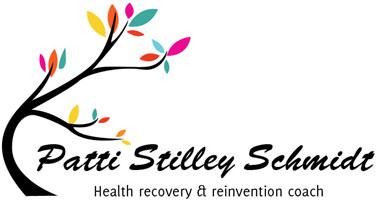If you’re allowing chronic illness to justify your unhappiness, you’re wasting opportunities for increased happiness and health.
By Patti Stilley Schmidt Health coach and consultantIf you’re living a “if only” life, you might say things to yourself like this:
- [If only] I were well, then I’d __________________ … (be happy, not be married to him or her, be working at something that I like, etc.)
- [If only] I were well, then I’d never be __________________ … (this fat, this poor, this overwhelmed, etc.)
- [If only] I didn’t have this stupid disease, I’d be ___________ (famous, happy, well-adjusted, living a normal life, etc.)
- [If only] I didn’t have the (fatigue, pain, cognitive problems), then I’d be able to _________________________ (work, be happy, get married, etc).
- [If only] they ___________________________ … (understood, would diagnose me correctly, give me the right meds, etc.), then ______________________ (I could recover, I’d be happy, I could move on with my life, etc.)
- [If only] _______________________________ (fill in your own blank here), then ____________________________________ (fill in your own blank here).
The problem with “if only” kind of thinking is that it limits your view of what is possible in your own individual situation. In essence, if you’re thinking this way, you’re not giving yourself the choice to be happy. Being happy does not require health.
Suffering the inevitable ups and downs of unrelenting chronic illness, we all sometimes feel sad, overwhelmed or just plain angry at our lot in life. There’s no getting around that sometimes, having an illness sucks. I allow myself to feel these feelings occasionally, but strictly reinforce what I call a two-hour rule — if I feel that way for more than two hours or so, I decide to change the way I feel. I’m not willing to waste another second feeling bad, and I do whatever’s necessary to stop feeling that way.
I do this because I’ve learned that the way I feel is within my control. Sometimes, getting myself to stop feeling bad required help, like visiting a therapist when I first lost a job to the illness. Sometimes I need to take a walk, call a trusted friend, or ask for other kinds of help. Sometimes I have to give myself a stern talking to. I do whatever’s necessary because I don’t want to waste my life feeling sorry for myself or limiting possibilities for happiness.
Now sometimes the two-hour rule does not — cannot — hold true. For example, when I was at the stage of illness many years ago where all that was truly possible was to sleep 12-16 hours a day for nine months, and I could hardly hold a cohesive thought in my head, I didn’t hold myself to the two-hour rule. But after that, when I was able only to get out of bed and sit on a chaise lounge in the living room and watch cartoons or read kids’ books, I did.
Others with illness have figured out this way of thinking, too. I particularly enjoyed the Elisabeth Tova Bailey’s The Sound of a Wild Snail Eating, Toni Bernhard’s How to Be Sick: A Buddhist-Inspired Guide for the Chronically Ill and Their Caregivers, and Good Days, Bad Days: the Self in Chronic Illness and Time by Kathy Charmaz. All offer guidance, encouragement, and uplifting inspiration for those who struggle with chronic illness.
If you’re interested in learning more about how to think about your illness so you’re more likely to be happy, here’s a list of books I often recommend http://www.goodreads.com/shelf/show/chronic-illness.
Patti Stilley Schmidt is a health coach, counselor and consultant. She’s a chronic illness survivor, with years of experience managing, researching and advocating to improve the lives of the chronically ill, especially those with stigmatized illnesses. She’s been a peer counselor, support group leader, national advocacy organization board member, and has written dozens of articles on these topics, along with the book Mold Warriors with Dr. Ritchie Shoemaker. She is finishing up a Master’s degree in Clinical and Counseling Psychology at Chestnut Hill College in Philadelphia.
